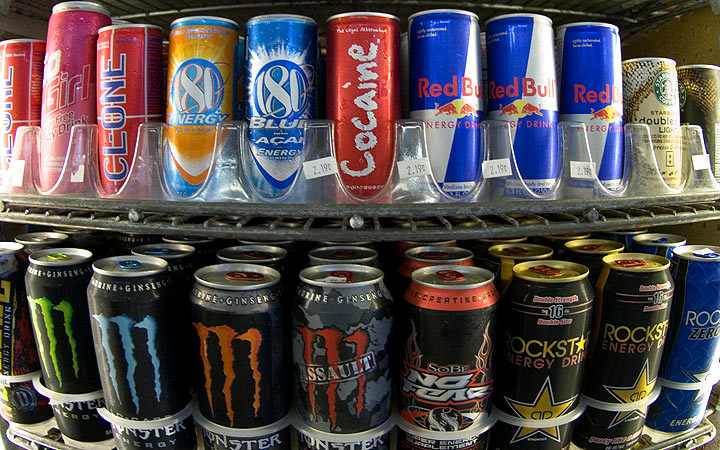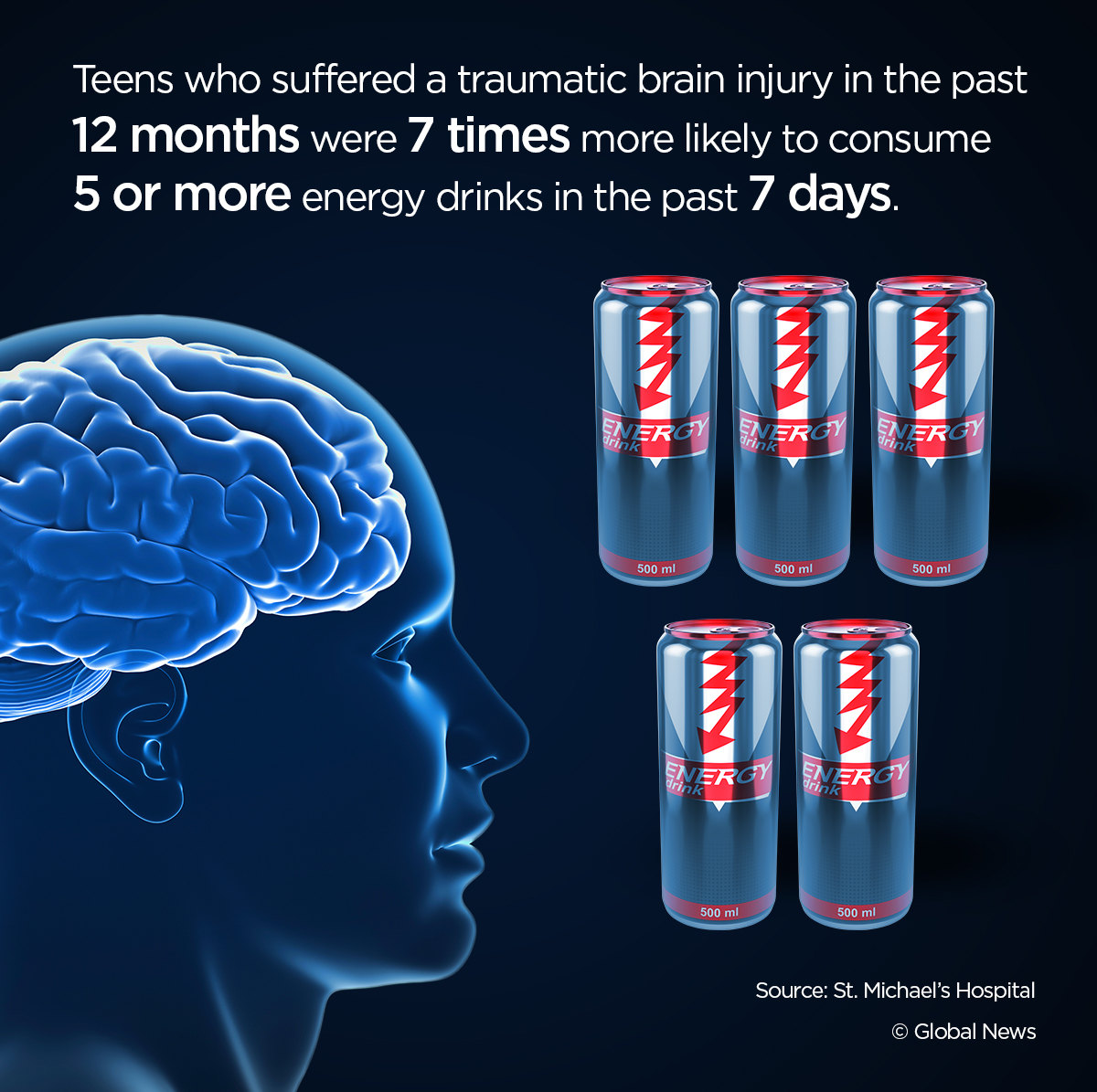Young athletes looking for an edge are turning to energy drinks to boost their performance, and new research shows an association with traumatic brain injury.

“I think that energy drinks appeal to teens, especially athletes, because the drinks provide temporary benefits such as increased alertness, improved mood and enhanced mental and physical states,” said Dr. Michael Cusimano, a neurosurgeon at St. Michael’s Hospital.
Researchers found teens who had suffered a traumatic brain injury in the past 12 months were seven times more likely to consume five or more energy drinks in the past seven days.
“We’ve found a link between increased brain injuries and the consumption of energy drinks or energy drinks mixed with alcohol,” said Cusimano. Energy drink popularity is rising among teens in Canada, in some provinces 40 per cent of teenagers admit to consuming the beverages.
Neuropsychology researcher Gabriela Ilie told Global News the association, “is frightening, it is alarming, it is concerning.”
READ MORE: Energy drinks could lead to dangerous side effects in kids: report
The research also showed that teens who suffered a traumatic brain injury (TBI) while playing team sports, for example hockey, during the past year, were twice as likely to consume energy drinks versus teens who incurred a TBI due to other types of injury including bicycle accidents, motor vehicle collisions, other vehicle collisions and fights.
“Traumatic brain injuries are more prevalent among males compared to female adolescents, and they occur during sports, team sports, in particular, more than half of those injuries occur during sports,” Ilie told Global News.
“Then you look at energy drinks and you see how they are being advertised and they are being advertised on big billboards showing top athletes in extreme sports holding one of those energy drinks and the message, the translation for kids is have one of those if you really want to be at the top of your game.”
What is unclear is whether student athletes are consuming energy drinks in order to perform better and then get injured, or consume a drink after a head injury in order to keep playing, the study authors urge more research is needed.
WATCH: Neuropsychology researcher Gabriel Ilie speaks about a study that finds an association between energy drinks and traumatic brain injuries in teens by St. Michael’s Hospital.
Close to 10,000 students, ages 11 to 20 took part in the survey, the data was collected by the Centre for Addiction and Mental Health’s 2013 Ontario Student Drug Use and Health Survey. A traumatic brain injury (TBI) was defined as a loss of consciousness for at least five minutes, or being hospitalized for at least one night.
READ MORE: Study finds energy drink consumption linked to depression, substance abuse in teens
For Jim Shepherd all of it is concerning. He believes his son’s death was caused by consuming an energy drink, and wants the sale of the drinks to those under 19 to be banned.
“I have heard of coaches handing out drinks, and parents coming and handing them out to the kids on a hockey team as well,” said Shepherd.
Jim’s son Brian was playing in a paintball tournament in 2008. According to police, free samples of energy drinks were handed out, fifteen-year-old Brian was witnessed drinking one, hours later Brian collapsed, and was rushed to hospital where he later died. The coroner said his death was due to an arrhythmia.
Shepherd is now an advocate and hopes to educate the public about energy drinks.
“I think that this (new research) is more proof that it’s just not worth it. Children and youth should not be exposed to these drinks.”
WATCH: Energy Drinks: Liquid health issues?
In response to the research the Canadian Beverage Association issued a statement, “the study published today cannot and does not show a causal link between energy drinks and adverse health outcomes. Energy drinks are non-alcoholic beverages which, in Canada, contain approximately half the caffeine of an equivalent-sized cup of drip coffee. According to Health Canada, 93% of all caffeine consumed by Canadians comes from coffee and tea.”
Researcher Gabriele Ilie hopes their study will lead to more thoughtfulness surrounding team sports and consumption of energy drinks, “the results are concerning and they really call for cautiousness, with respect to sports for parents and coaches.”







Comments